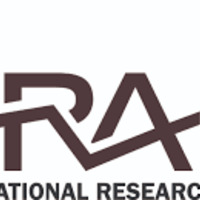-
Title
-
Reimagining the Education Research Commons: Toward Epistemic Justice [Presidential Session]
-
Abstract/Description
-
Cultivating equitable education systems for the 21st-century requires critical attention to the education research commons: the knowledge resources we share, the sociotechnical infrastructures we rely on, the practices through which we work, and the principles underlying them. Our goal in this interactive session is to catalyze dialogue on the design of the education research commons, inspired by presenters’ concrete visions of possible futures, and framed by synergies and tensions in literatures on open science, epistemic (in)justice, pluriversality, infrastructure studies, and knowledge commons. Participants will interact in small groups, organized by six visions for aspects of the research commons, to share their perspectives on the design of the education research commons. A report documenting contributions of presenters and participants will offer a resource for continuing design dialogue.
-
Date
-
April 22, 2022
-
At conference
-
AERA Annual Meeting
-
Series
-
Presidential Session
-
Chair
-
Moss, Pamela A.
-
Hammond, J. W.
-
Participant
-
Ahn, June
-
Bang, Megan
-
Booker, Angela N.
-
Dixón-Roman, Ezekiel J.
-
Gitomer, Drew H.
-
Penuel, William R.
-
Riedy, Robbin
-
Villanosa, Krystal
-
Vossoughi, Shirin
-
IRE Approach/Concept
-
Infrastructure
-
Knowledge Commons
-
Social Media
-
Epistemic Justice
-
Equity
-
Racial Justice
-
Participatory Design
-
Use of Research Evidence (URE)
-
Open access/full-text available
-
en
Partial
-
Grant number
-
Spencer Foundation Grant #201900070
-
Citation
-
Moss, P. A., & Hammond, J. W. (Chairs). (2022, April 22). Reimagining the Education Research Commons: Toward Epistemic Justice [Presidential Session]. AERA Annual Meeting. San Diego, CA.
-
content
-
Presidential Session
Annual Meeting of the American Educational Research Association
April 22, 2022
REIMAGINING THE EDUCATION RESEARCH
COMMONS: TOWARD EPISTEMIC JUSTICE
�INSPIRATIONS: ANNUAL MEETING THEME
“Cultivating equitable educational systems” requires us
▪ to look critically at (in)equities in our education
research commons--our systems for producing,
sharing, and putting research to work and
▪ to imagine possibilities for change.
�INSPIRATIONS: EPISTEMIC (IN)JUSTICE
▪ To support this work, we take up
questions concerning epistemic
(in)justice, which speaks to
power and the ethics of knowing
(Fricker, 2007)
Fricker, M. (2007). Epistemic injustice: Power & the ethics of knowing. Oxford UP.
�AGENDA
Introduction
▪ J. W. Hammond & Pamela Moss, University of Michigan
Six Commons Visions
▪ William Penuel & Robbin Riedy, University of Colorado, Boulder
▪ Krystal Villanosa & Megan Bang, Northwestern University &
The Spencer Foundation
▪ Kevin Crouse & Drew Gitomer, Rutgers University
▪ June Ahn, University of California, Irvine
▪ Ezekiel Dixon-Román, University of Pennsylvania
▪ Angela Booker, University of California, San Diego &
Shirin Vossoughi, Northwestern University
Small Group Dialogue
�ORIENTING DEFINITIONS
▪ Education Research Commons
▪ Epistemic (In)Justice
J. W. Hammond & Pamela Moss
University of Michigan
�ORIENTING DEFINITIONS
▪ Education Research Commons
▪ Epistemic (In)Justice
J. W. Hammond & Pamela Moss
University of Michigan
�“The commons is an active verb, not
just an inert noun. … It is a resource,
plus a defined community and the
protocols, values and norms devised
by the community to manage needed
resources.”
(Bollier, 2014, 173-6)
�EDUCATION RESEARCH COMMONS
ALSO INCLUDE…
▪ Technologies on which we rely
▪ Social structures and practices through
which we work
▪ Policies that finance and govern them
▪ Pedagogies through which we learn to
participate
▪ Principles underlying the elements above
�“Open science aims to ensure the free
availability and usability of scholarly
publications, the data that result from
scholarly research, and the
methodologies, including code or
algorithms, that were used to generate
those data.”
(NASEM, 2018, 1)
National Academies of Sciences, Engineering, & Medicine. (2018). Open science by design:
Realizing a vision for 21st century research. National Academies Press.
��EPISTEMIC GOALS IN ANNUAL MEETING THEME
▪ Call for “systems that honor the full range of
knowing” (i.e., across “human experiences,
identities, and practices”)
▪ Answering this call requires reimagining the
commons
▪ We need a commons that encourages learning
across different knowledges and ways of knowing
�Who has voice and who doesn’t? Are voices
interacting with equal agency and power? In
whose terms are they communicating? Who
is being understood and who isn’t (and at
what cost)? Who is being believed? And
who is even being acknowledged and
engaged with?
(Kidd, Medina, & Pohlhaus, 2017, 1)
Pohlhaus Jr., G. (2017). Varieties of epistemic injustice. In I. Kidd, J. Medina, G. Pohlhaus Jr.
(Eds.), The Routledge handbook of epistemic injustice (pp. 13-26). Routledge.
�Who has voice and who doesn’t? Are voices
interacting with equal agency and power? In
whose terms are they communicating? Who
is being understood and who isn’t (and at
what cost)? Who is being believed? And
who is even being acknowledged and
engaged with?
(Kidd, Medina, & Pohlhaus, 2017, 1)
Pohlhaus Jr., G. (2017). Varieties of epistemic injustice. In I. Kidd, J. Medina, G. Pohlhaus Jr.
(Eds.), The Routledge handbook of epistemic injustice (pp. 13-26). Routledge.
�“[We need to interrogate] who has the ability to set
agendas, standards, and norms; to make decisions
and [define] the conditions of participation; and
ultimately, to control how knowledge infrastructures
are built.”
“[We need dialogue that] nurtures curiosity,
appreciation, and respect for diverse ways of
knowing the world… [along with] time and
space…to develop collaborative imaginaries for
more just and equitable knowledge infrastructures.”
(Albornoz, Okune, & Chan, 2020, 71-4)
Albornoz, D., Okune, A., & Chan, L. (2020). Can open scholarly practices redress epistemic
injustice? In M. P. Eve & J. Gray (Eds.), Reassembling scholarly communications: Histories,
infrastructures, and global politics of open access (pp. 65-79). MIT Press.
�“[We need to interrogate] who has the ability to set
agendas, standards, and norms; to make decisions
and [define] the conditions of participation; and
ultimately, to control how knowledge infrastructures
are built.”
“[We need dialogue that] nurtures curiosity,
appreciation, and respect for diverse ways of
knowing the world… [along with] time and
space…to develop collaborative imaginaries for
more just and equitable knowledge infrastructures.”
(Albornoz, Okune, & Chan, 2020, 71-4)
Albornoz, D., Okune, A., & Chan, L. (2020). Can open scholarly practices redress epistemic
injustice? In M. P. Eve & J. Gray (Eds.), Reassembling scholarly communications: Histories,
infrastructures, and global politics of open access (pp. 65-79). MIT Press.
�SIX COMMONS VISIONS…
… to spark our imaginations
▪ William Penuel & Robbin Riedy, University of Colorado,
Boulder
▪ Krystal Villanosa & Megan Bang, Northwestern University &
The Spencer Foundation
▪ Kevin Crouse & Drew Gitomer, Rutgers University
▪ June Ahn, University of California, Irvine
▪ Ezekiel Dixon-Román, University of Pennsylvania
▪ Angela Booker, University of California, San Diego & Shirin
Vossoughi, Northwestern University
�IN TODAY’S PRESENTATIONS, YOU MIGHT
LISTEN FOR THE FOLLOWING:
▪ What concern about the existing commons is being
addressed?
▪ What values or principles are advanced?
▪ What’s being imagined as a change toward more
equitable education systems—and how?
▪ What do YOU see as the contrasts and
complementarities in the different presentations
today?
�WORKS CITED
Albornoz, D., Okune, A., & Chan, L. (2020). Can open scholarly practices redress
epistemic injustice? In M. P. Eve & J. Gray (Eds.), Reassembling scholarly
communications: Histories, infrastructures, and global politics of open access (pp. 65-79).
MIT Press.
Fricker, M. (2007). Epistemic injustice: Power & the ethics of knowing. Oxford UP.
Kidd, I., Medina, J., & Pohlhaus Jr., G. (2017). Introduction to The Routledge handbook of
epistemic injustice. In I. Kidd, J. Medina, G. Pohlhaus Jr. (Eds.), The Routledge
handbook of epistemic injustice (pp. 1-9). Routledge.
National Academies of Sciences, Engineering, & Medicine. (2018). Open science by
design: Realizing a vision for 21st century research. National Academies Press.
Pohlhaus Jr., G. (2017). Varieties of epistemic injustice. In I. Kidd, J. Medina, G. Pohlhaus
Jr. (Eds.), The Routledge handbook of epistemic injustice (pp. 13-26). Routledge.
 Spencer Foundation
Spencer Foundation

